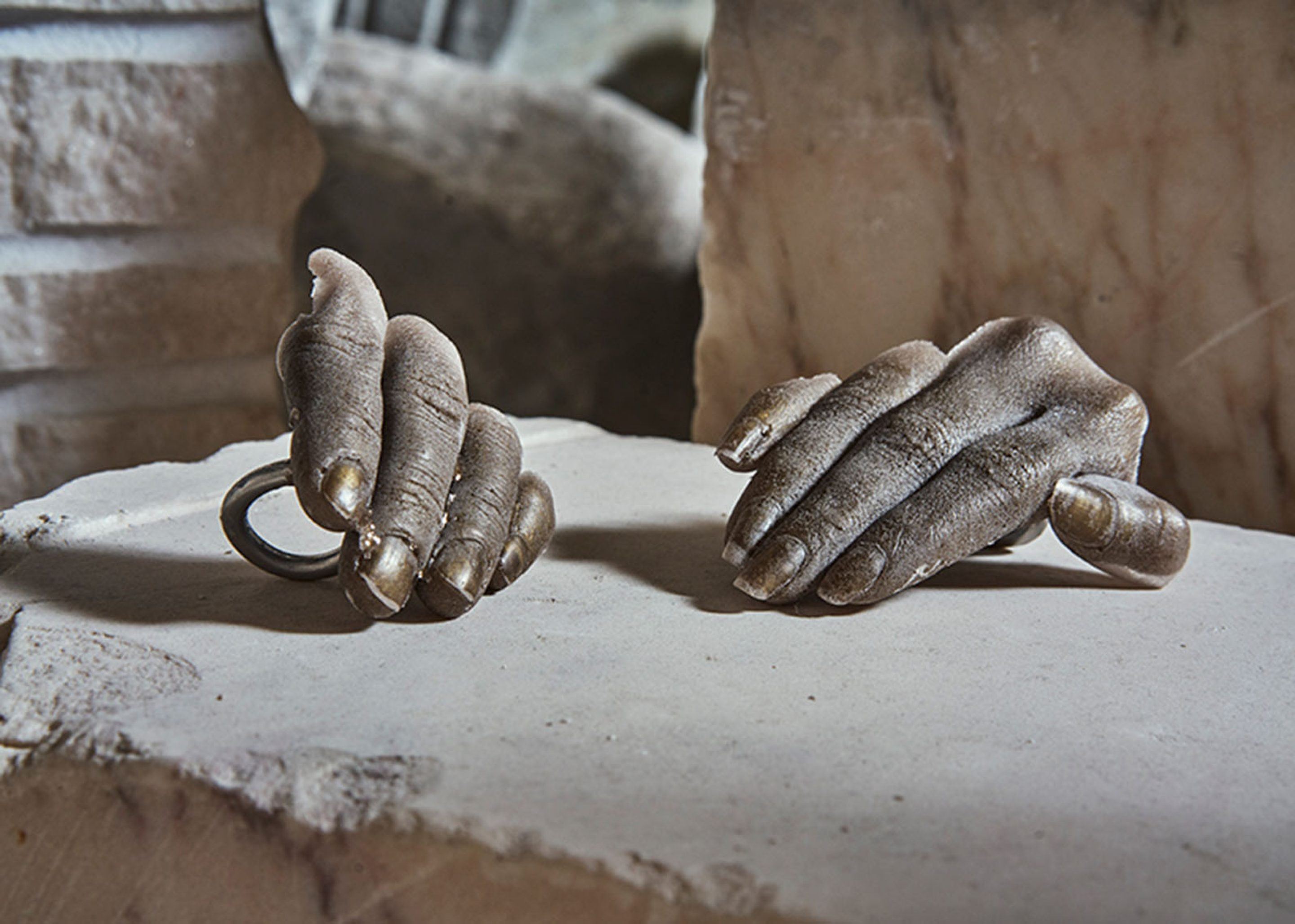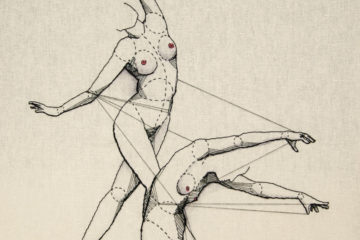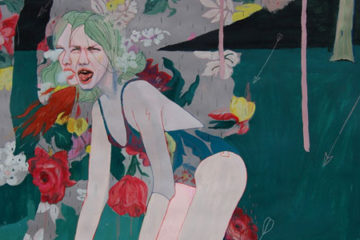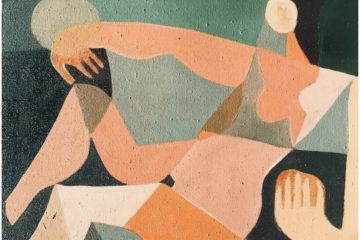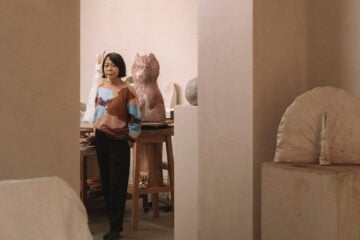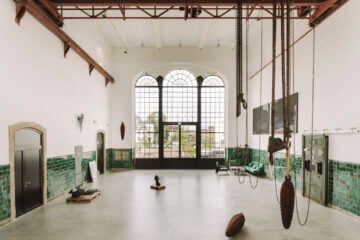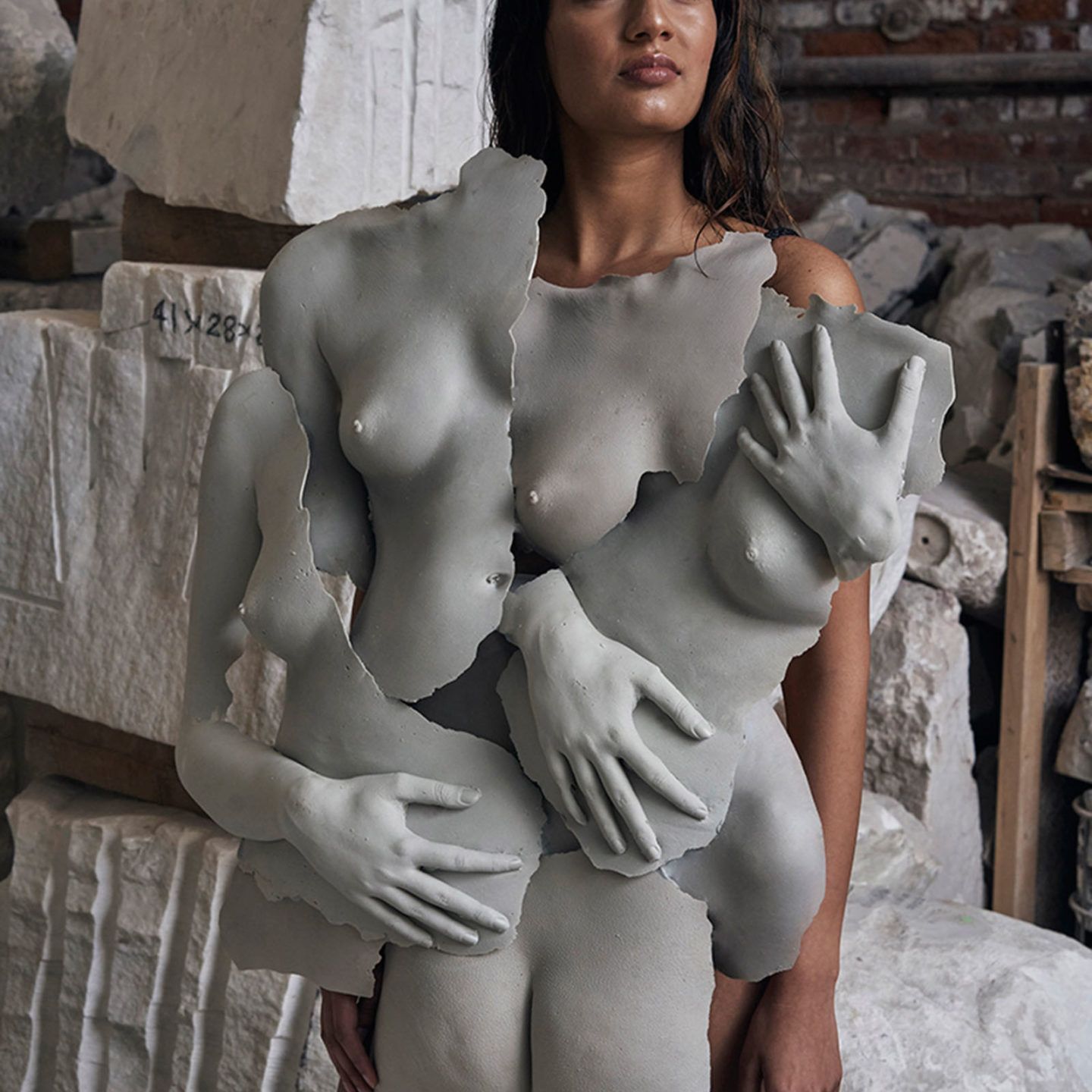
The Powerful Feminist Symbolism Of Misha Japanwala’s Azaadi
- Name
- Misha Japanwala
- Project
- Azaadi
- Images
- Alec Lesser
- Words
- Steph Wade
‘Azaadi’ is the collection of sculpted garments created by New York-based artist and designer Misha Japanwala. Fusing fashion and art, ‘Azaadi’ is an homage to the strength and bravery of the women of Pakistan.
The London-born artist and designer grew up in Islamabad, Pakistan, before relocating to New York, where she has spent the past year working on a collection for her university thesis. In the later processes of her research for ‘Azaadi’, Japanwala traveled to Pakistan where she spent time speaking to victims of domestic violence about their experiences. Returning to New York after this affecting trip, she completed ‘Azaadi’, imbuing the collection with the stories of the women she spoke to. The result is an intimate selection of sculpted garments that illuminate the female body in both fabric and plaster. The artist created grey plaster molds of her own nude body to symbolize shields of armor; a metaphor for the protection of said women. The hand molds are taken from the women Japanwala spoke to, bringing together parts of their bodies with hers.
Her artist statement explains the journey of understanding the precarious experience of being a woman in Pakistan: “I wanted to use casts of my own body as vessels to highlight the strength of the women who weren’t afraid to fight to live on their own terms”, she explains. “[And] also, the fragility that comes with being an outspoken woman in Pakistan”. Azaadi, which means ‘freedom’ in Urdu, is a compelling way for Japanwala to express both herself and the lived experience of many.
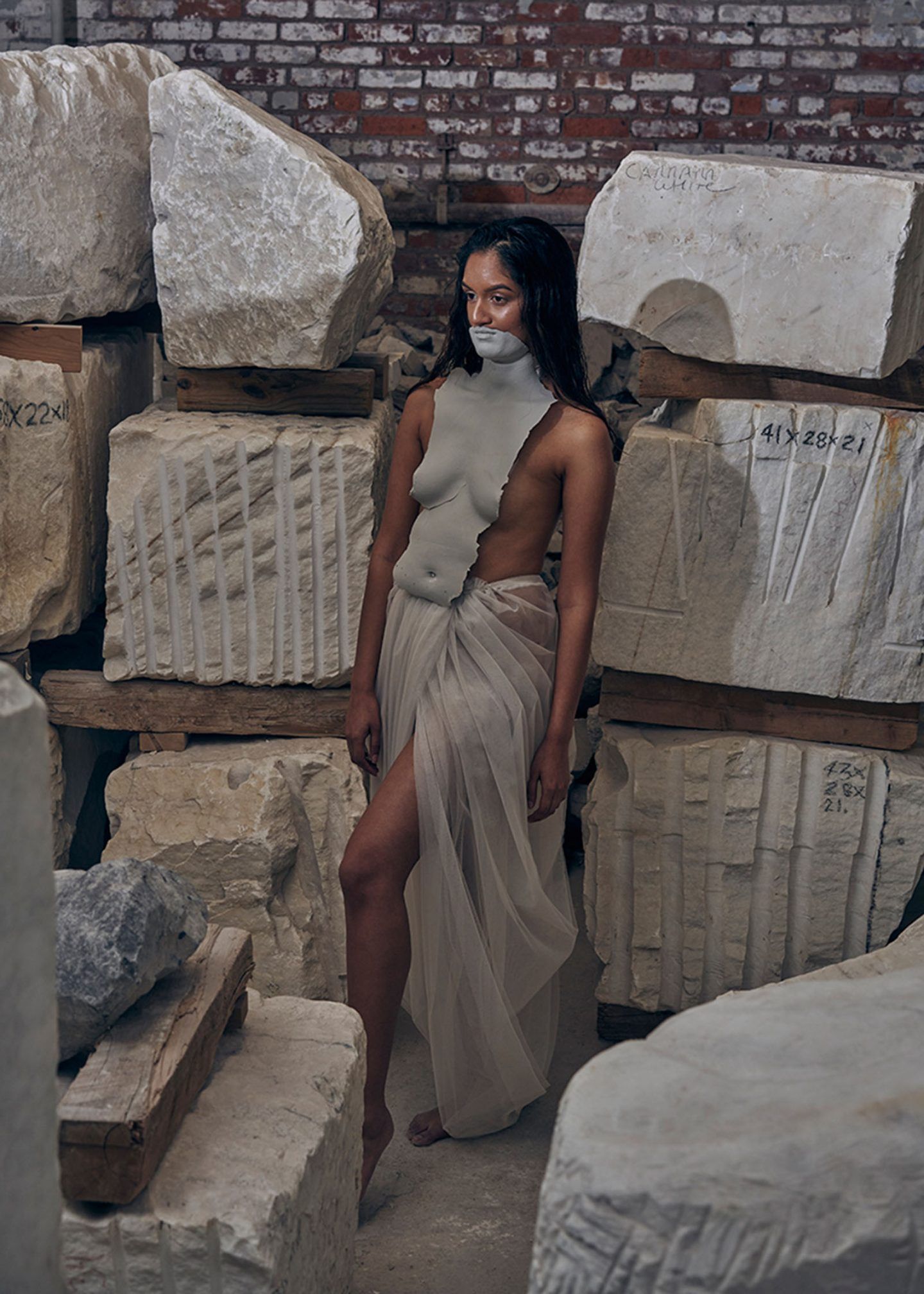
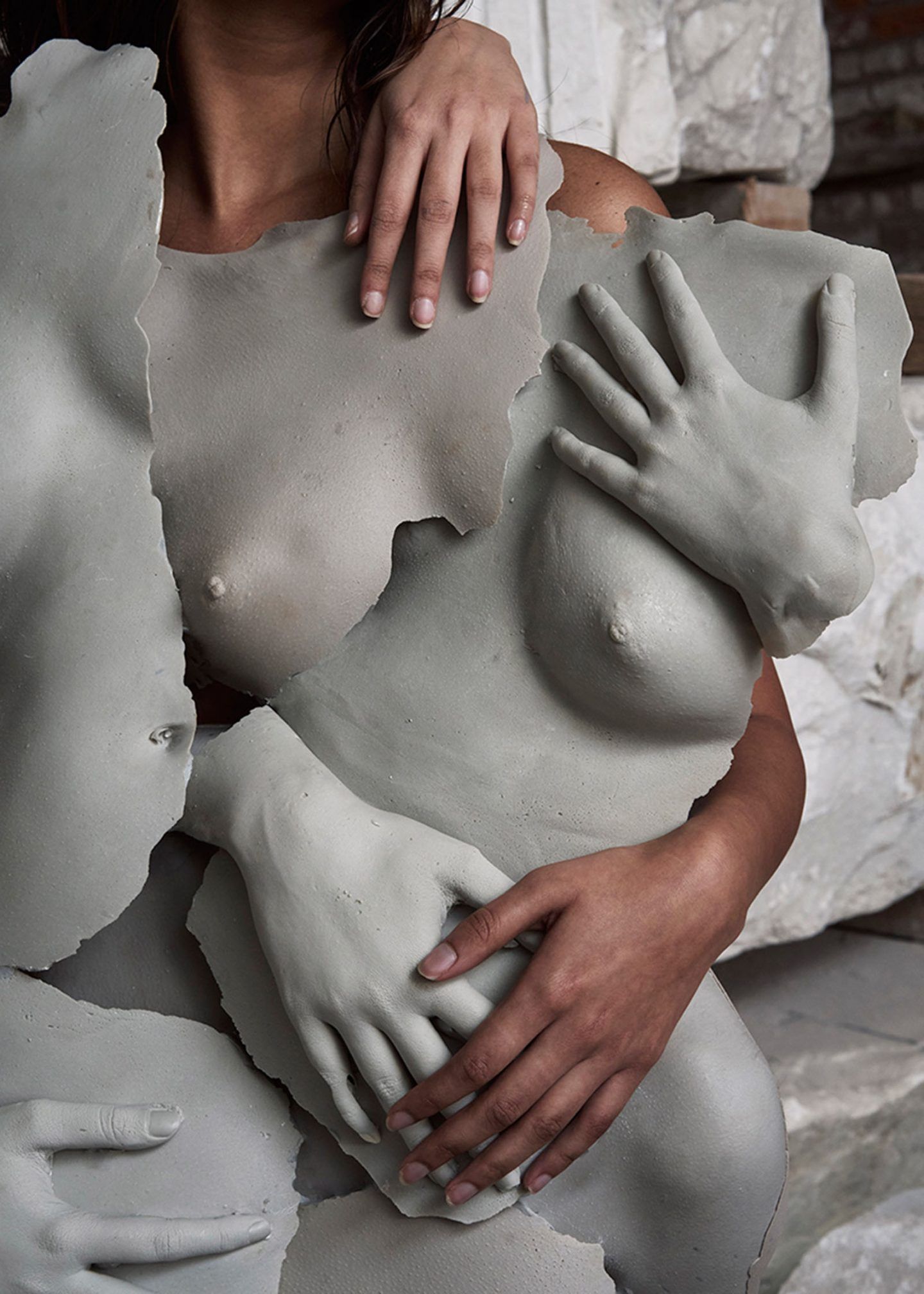
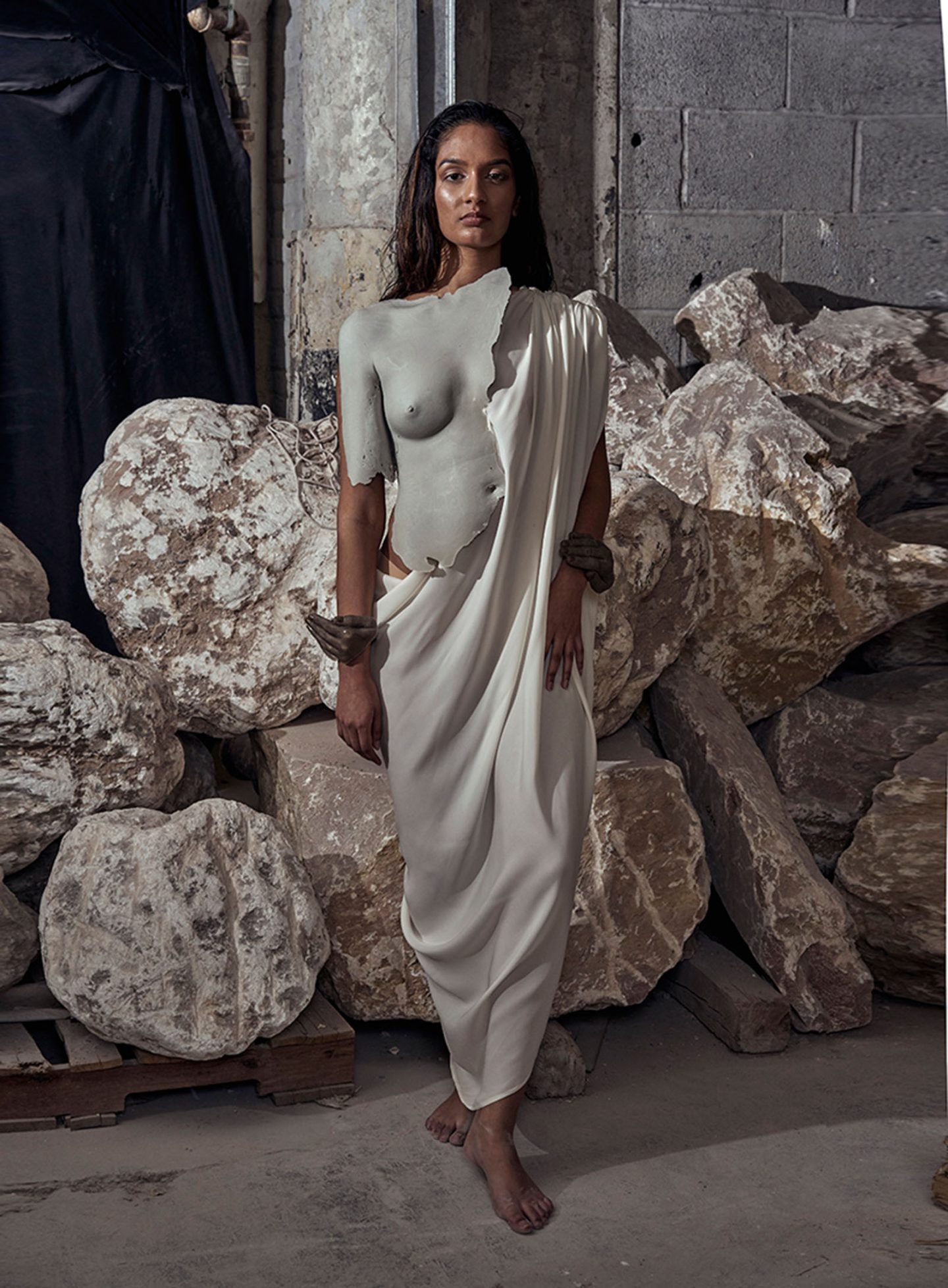
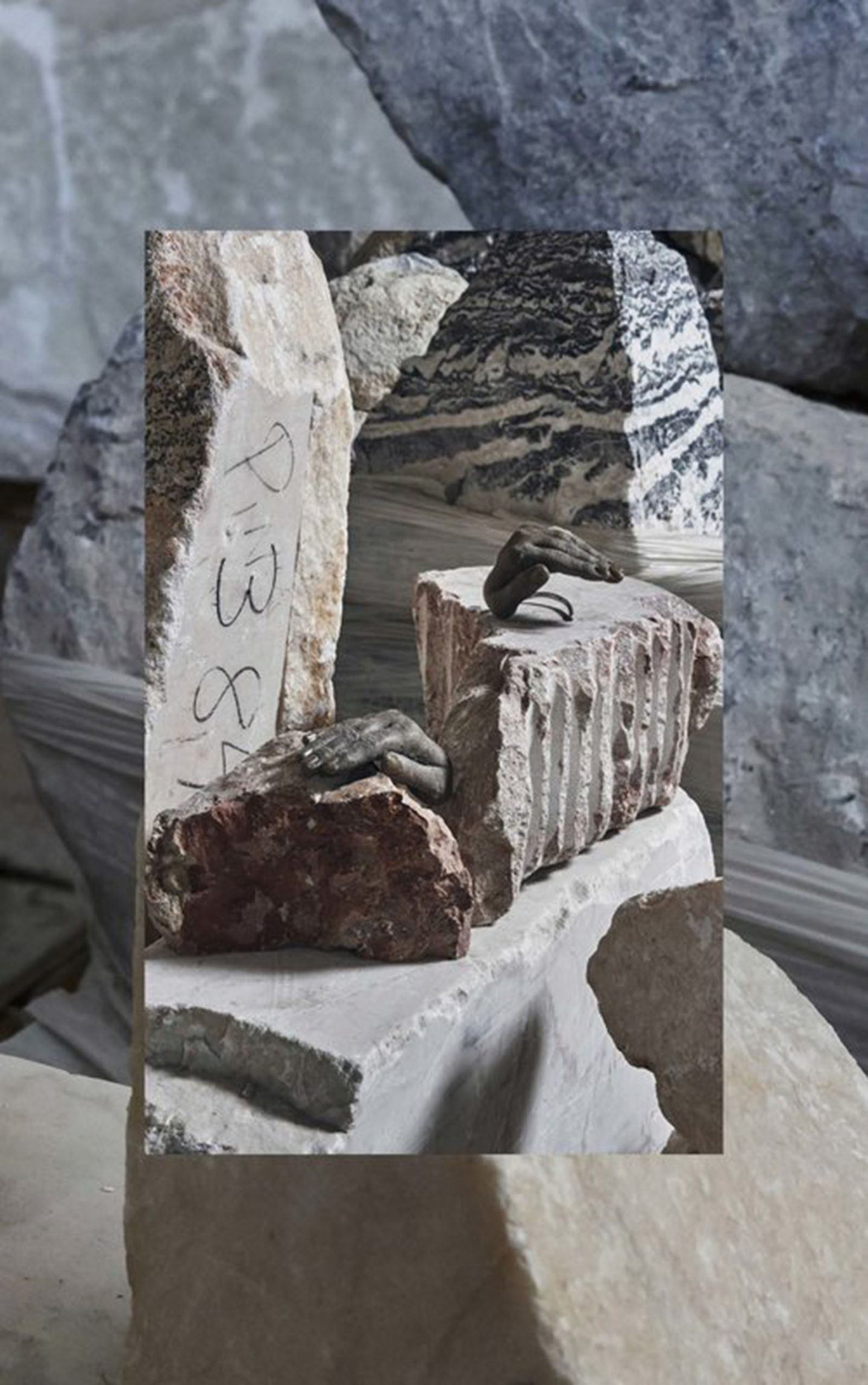
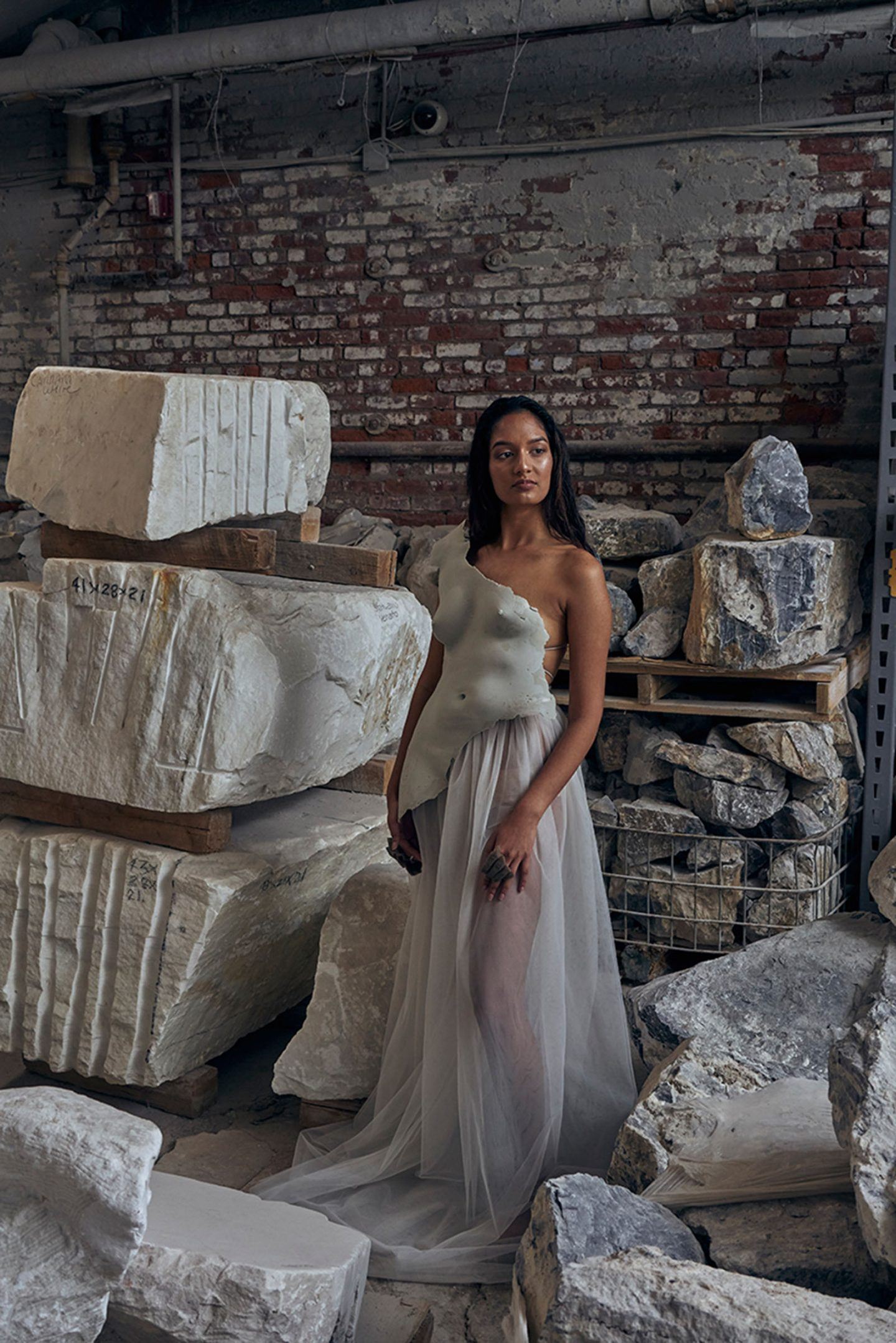
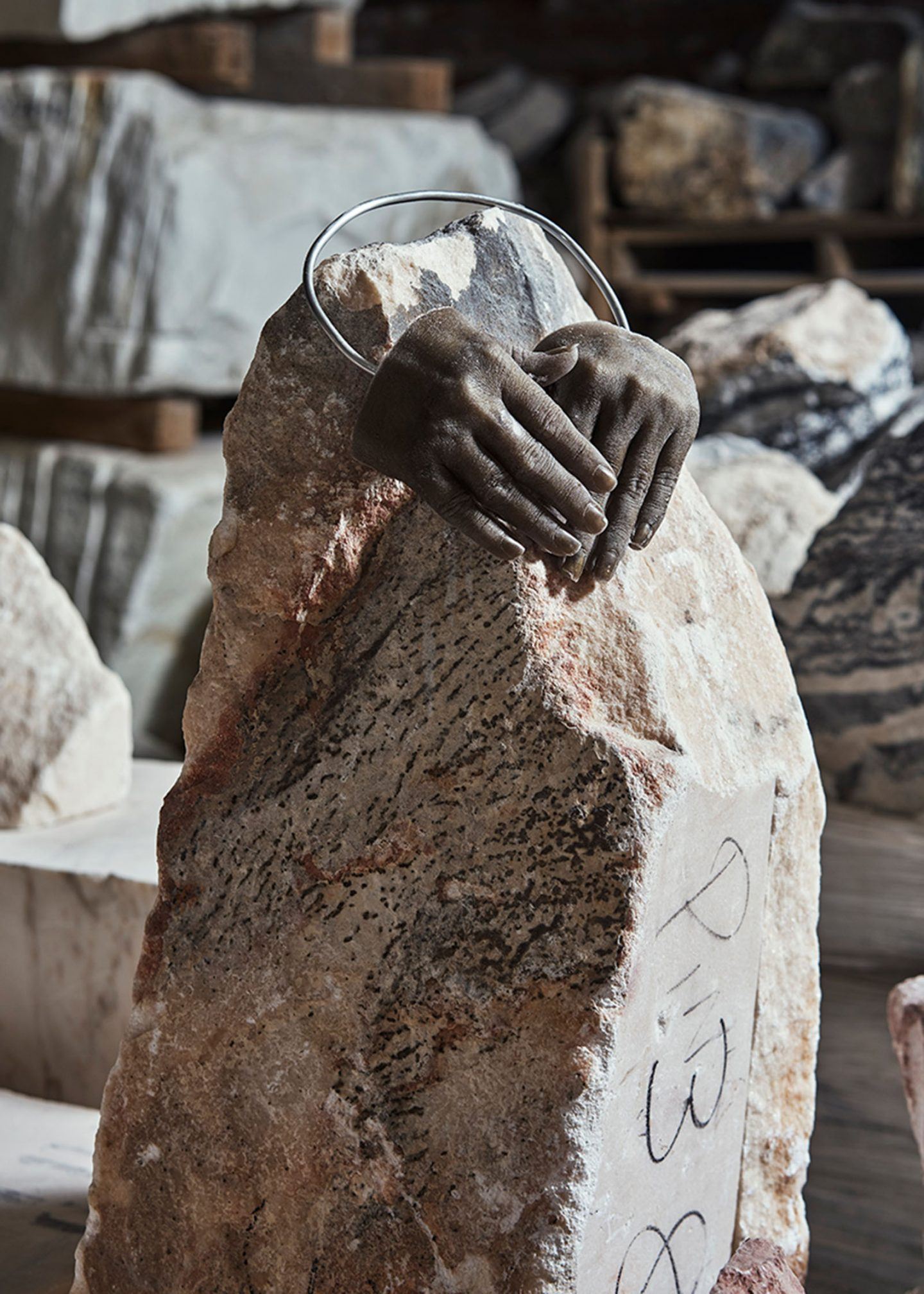
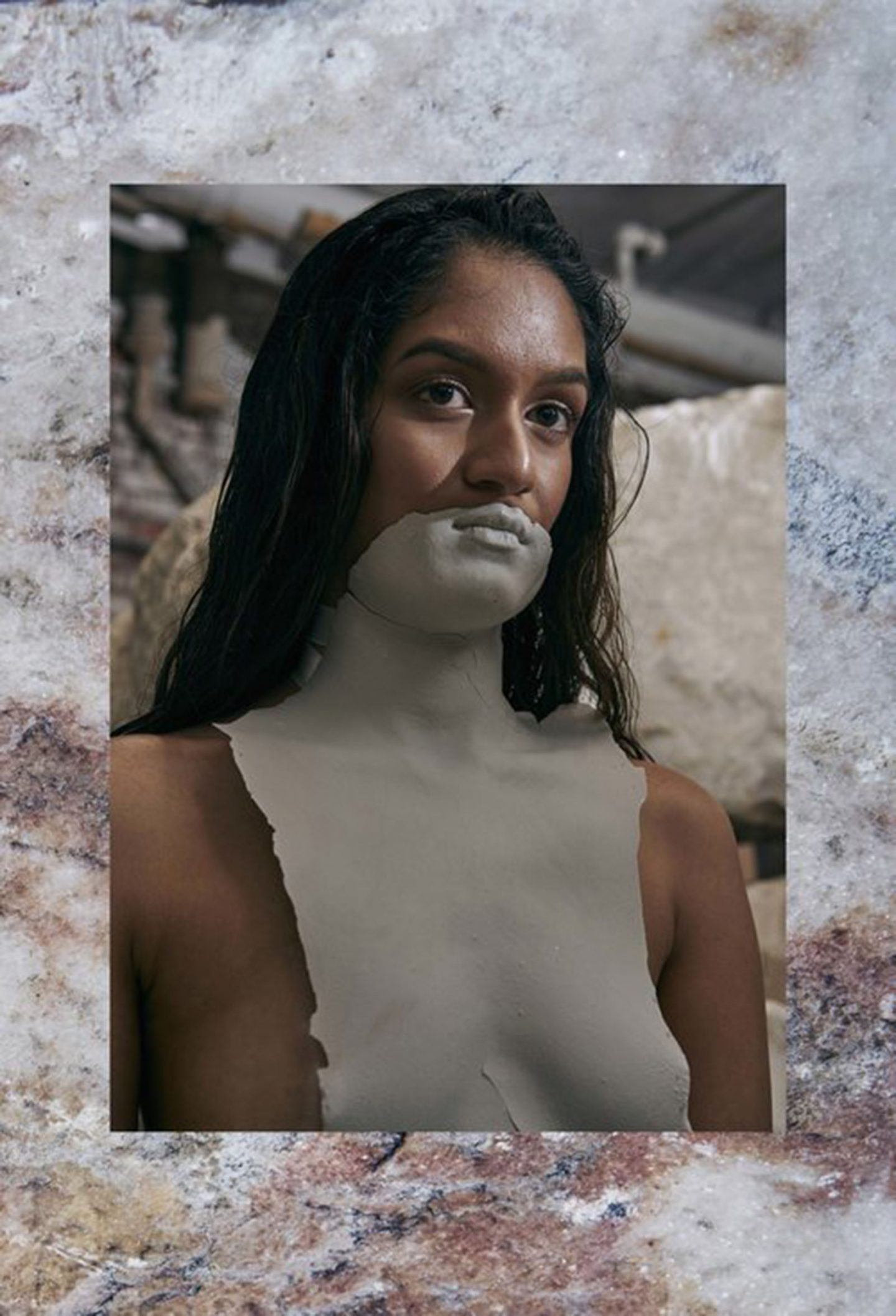
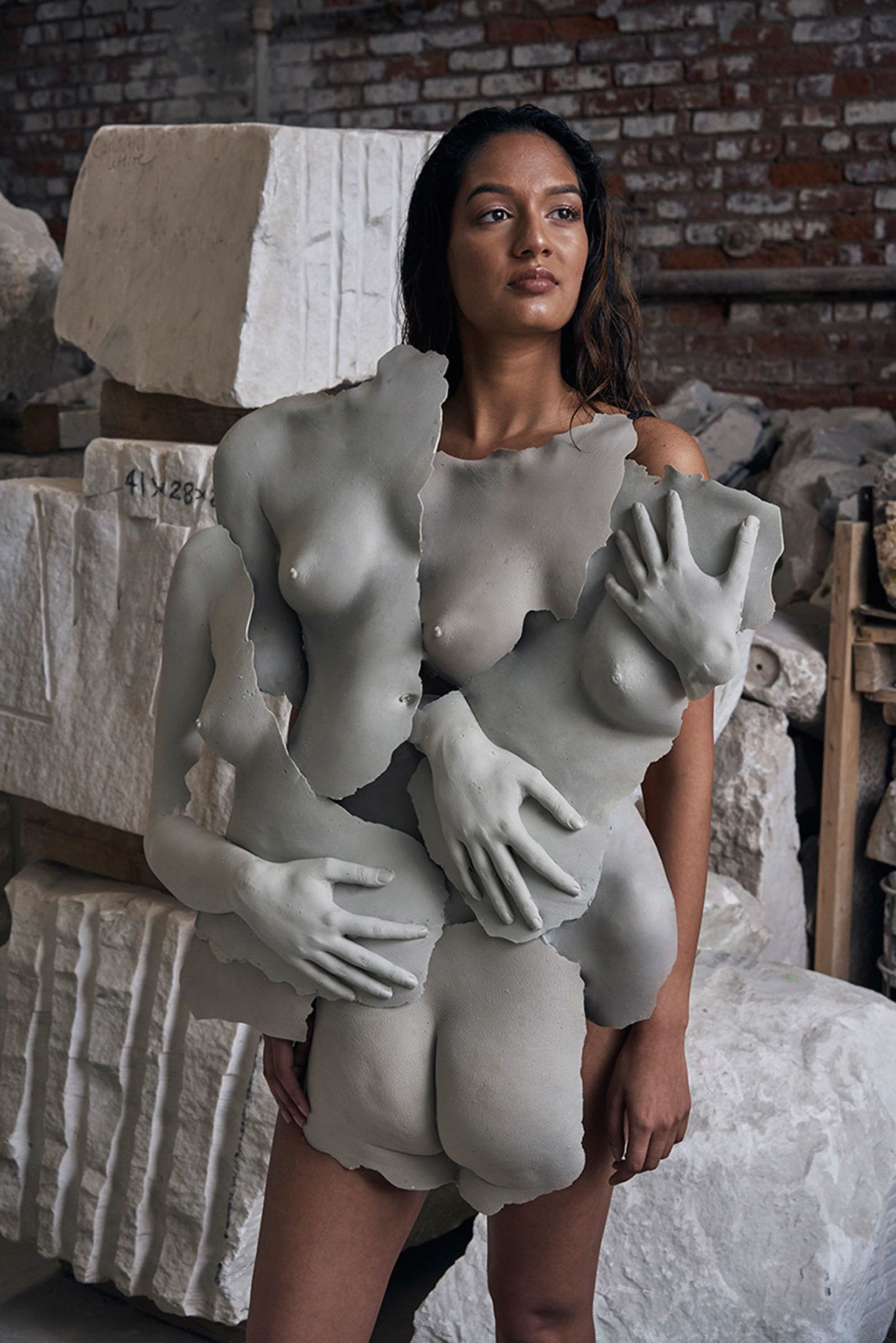
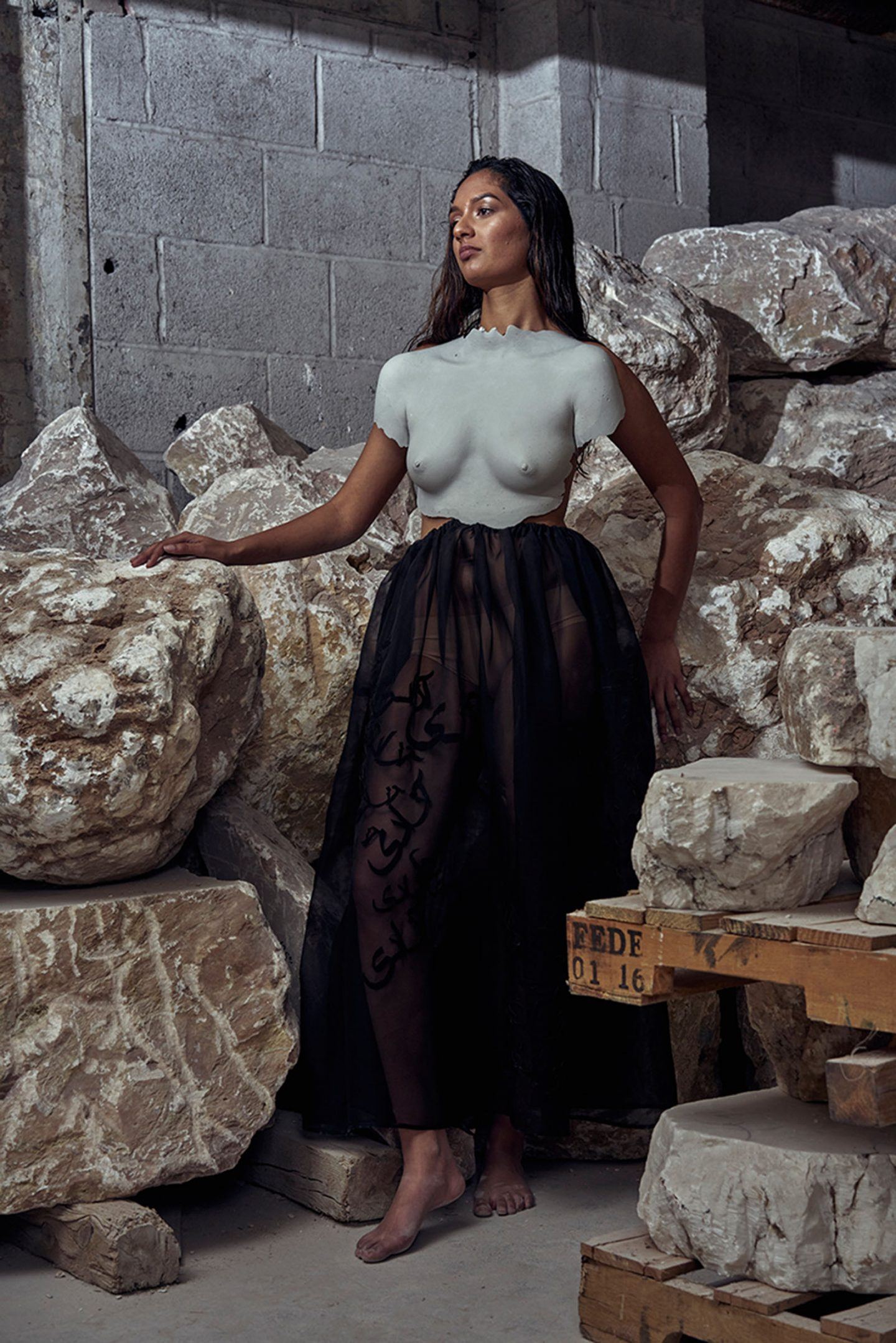
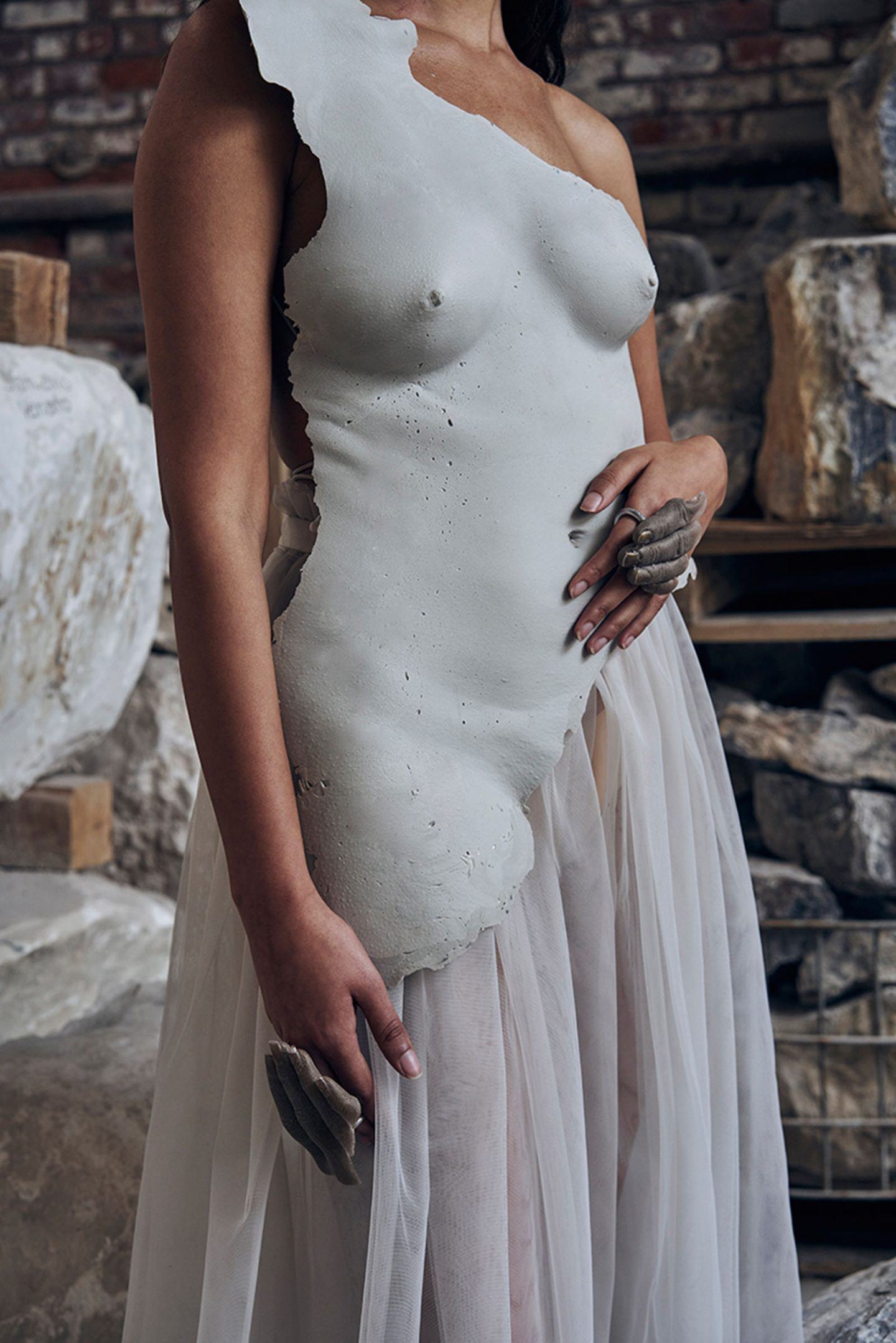
All images © Teagan West and Alec Lesser
